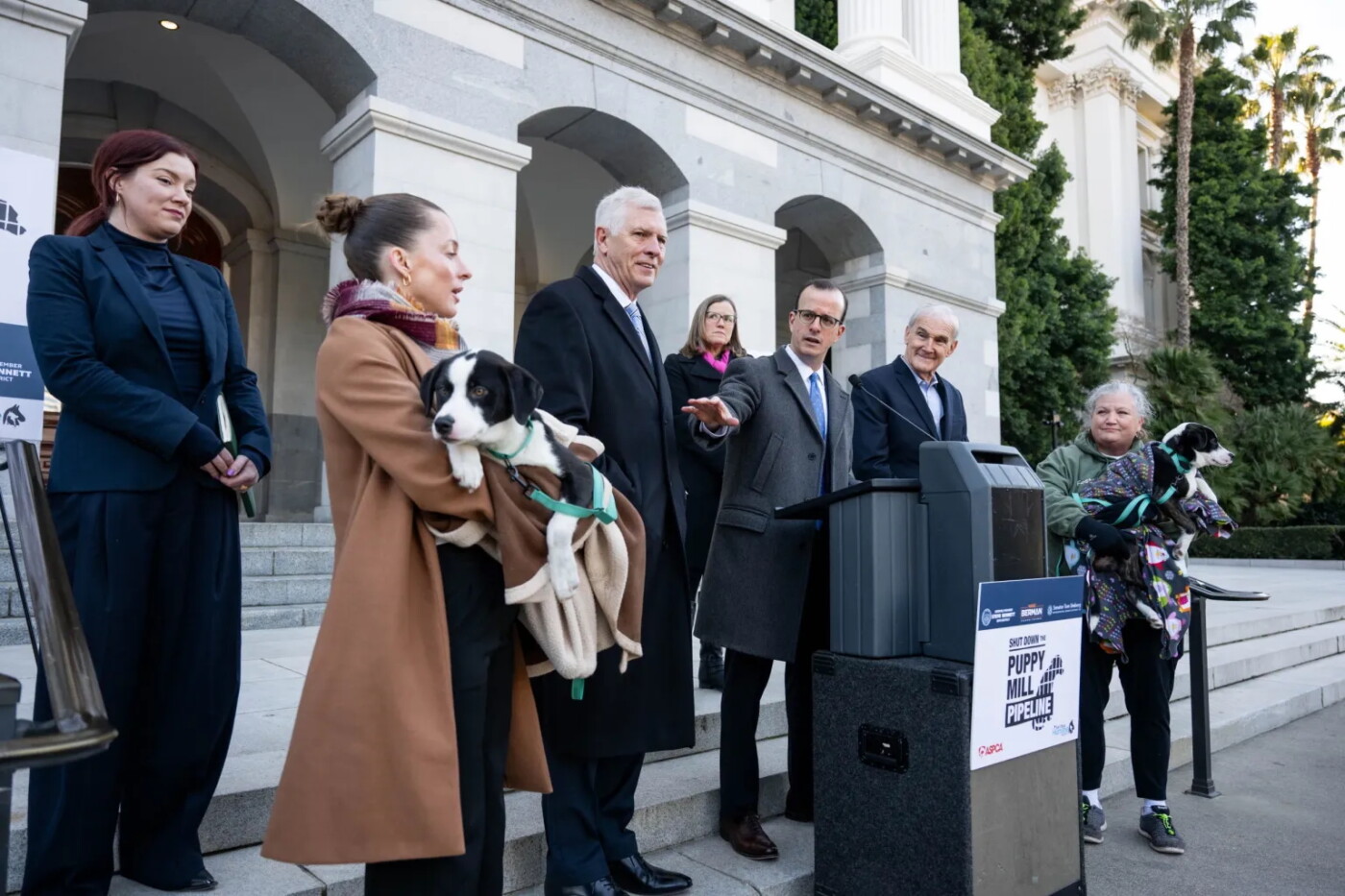A new law signed by Gov. Gavin Newsom will make it harder to sell pets for those who pose as small home breeders but actually deal in dogs that likely come from puppy mills.
Assembly Bill 519 kneecaps puppy mills by prohibiting online and other third-party for-profit pet brokers from selling cats, puppies or rabbits bred by others.
The bill was authored by state Assemblymember Marc Berman, D-Palo Alto, to address loopholes puppy mill operators were exploiting after a state law was passed in 2017 barring pet stores from selling animals procured from anyone or any organization that isn’t an animal control agency or shelter, a specified nonprofit, or an animal rescue or adoption organization.
After pet stores stopped being able to sell puppy mill dogs, the people selling dogs born in high-capacity breeding facilities had to get creative. At first, they established nonprofit entities to be able to sell animals in pet stores legally — that is until 2021’s Assembly Bill 2152, which narrowed the definition of an animal rescue nonprofit.
The next move was to act as a third-party broker and sell through Californians purporting to be home breeders.
A 2024 Los Angeles Times expose about how puppy mills were importing thousands of animals into the state under the guise of “California bred” small home breeders led to Berman and two other lawmakers – Sen. Tom Umberg, D-Santa Ana, and Assemblymember Steve Bennett, D-Oxnard — to offer the bill signed by Newsom on Oct. 9.
“I was shocked to learn that bad actors are getting around California’s ban on puppy mills by claiming to be local breeders,” said Berman in a statement posted on his website. “In reality they’re buying abused and neglected puppies from cruel out-of-state breeding operations and selling them to unsuspecting pet parents.”
This bill is bolstered by two others signed by Newsom, Senate Bill 312 authored by Umberg and Assembly Bill 506 authored by Bennett. Both bills make it easier for companion pet buyers to know exactly where their animals came from and other important information.
SB 312 requires dog importers to turn in health certificates to the California Department of Food and Agriculture within 10 days of shipment rather than to the county where the animal was sent. This will make it less likely for an animal’s health information to fall between the cracks and also will give consumers a single point of access to the information.
The more transparent an animal’s origin and health information, the harder it is for a puppy mill to remain in the shadows.
AB 506 forces pet sellers to disclose the origin and health of an animal and bars sellers from asking for non-refundable deposits, something mass breeders use to get out of consequences for selling unhealthy pets. Bennet said online sales of animals are rife with fraud and shady tactics, with pet scams being the number one online fraud in the state. Newsom agrees.
“The legislation also voids contracts that include non-refundable deposits, which all too often result in a bait-and-switch by committing hopeful pet parents to unhealthy pets — and feeds the puppy mill industry,” the governor said in a statement about the bill.
Newsom went as far as to say that up to 80% of sponsored pet ads online in the state may be fake.
All three laws go into effect on Jan. 1, 2026.
The post No grist for the puppy mills: Newsom signs laws to curb exploitative animal sellers appeared first on Local News Matters.
